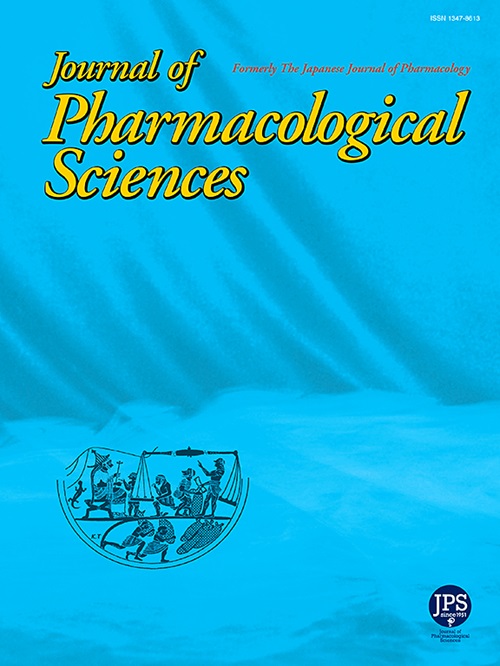Effects of fecal microbiota transplantation on behavioral abnormality in attention deficit hyperactivity disorder-like model rats
IF 2.9
3区 医学
Q2 PHARMACOLOGY & PHARMACY
引用次数: 0
Abstract
Attention deficit/hyperactivity disorder (ADHD) is a neurodevelopmental disorder characterized by inattention, hyperactivity, and impulsivity. ADHD symptoms not only impact patients and their families but also impose societal costs. Current treatments for ADHD, including environmental adjustments and medication, are symptomatic and require long-term management. Recently, the link between gut microbiota dysbiosis and various psychiatric and neurological disorders has become evident. The effectiveness of fecal microbiota transplantation (FMT) from healthy individuals in treating autism spectrum disorder, a neurodevelopmental disorder related to ADHD, has been demonstrated. However, despite suggestions of a relationship between ADHD and gut microbiota, few studies have explored the efficacy of FMT for ADHD. In the current study, we used 16S rDNA analysis to show that ADHD-like model rats possess a gut microbiota that is distinct from that of healthy rats, and we demonstrated that FMT from healthy rats improved hyperactivity in ADHD-like model rats. Our findings suggest that differences in gut microbiota underlie ADHD-like behaviors and that FMT may be an effective treatment for ADHD.
粪便菌群移植对注意缺陷多动障碍样模型大鼠行为异常的影响
注意缺陷/多动障碍(ADHD)是一种以注意力不集中、多动和冲动为特征的神经发育障碍。注意缺陷多动障碍的症状不仅影响患者和他们的家庭,而且造成社会成本。目前对多动症的治疗,包括环境调整和药物治疗,都是有症状的,需要长期管理。最近,肠道微生物群失调与各种精神和神经疾病之间的联系已经变得明显。来自健康个体的粪便微生物群移植(FMT)治疗自闭症谱系障碍(一种与ADHD相关的神经发育障碍)的有效性已被证明。然而,尽管存在ADHD与肠道微生物群之间的关系,但很少有研究探讨FMT对ADHD的疗效。在目前的研究中,我们使用16S rDNA分析显示adhd样模型大鼠具有与健康大鼠不同的肠道微生物群,并且我们证明来自健康大鼠的FMT改善了adhd样模型大鼠的多动性。我们的研究结果表明,肠道微生物群的差异是ADHD样行为的基础,FMT可能是治疗ADHD的有效方法。
本文章由计算机程序翻译,如有差异,请以英文原文为准。
求助全文
约1分钟内获得全文
求助全文
来源期刊
CiteScore
6.20
自引率
2.90%
发文量
104
审稿时长
31 days
期刊介绍:
Journal of Pharmacological Sciences (JPS) is an international open access journal intended for the advancement of pharmacological sciences in the world. The Journal welcomes submissions in all fields of experimental and clinical pharmacology, including neuroscience, and biochemical, cellular, and molecular pharmacology for publication as Reviews, Full Papers or Short Communications. Short Communications are short research article intended to provide novel and exciting pharmacological findings. Manuscripts concerning descriptive case reports, pharmacokinetic and pharmacodynamic studies without pharmacological mechanism and dose-response determinations are not acceptable and will be rejected without peer review. The ethnopharmacological studies are also out of the scope of this journal. Furthermore, JPS does not publish work on the actions of biological extracts unknown chemical composition.

 求助内容:
求助内容: 应助结果提醒方式:
应助结果提醒方式:


